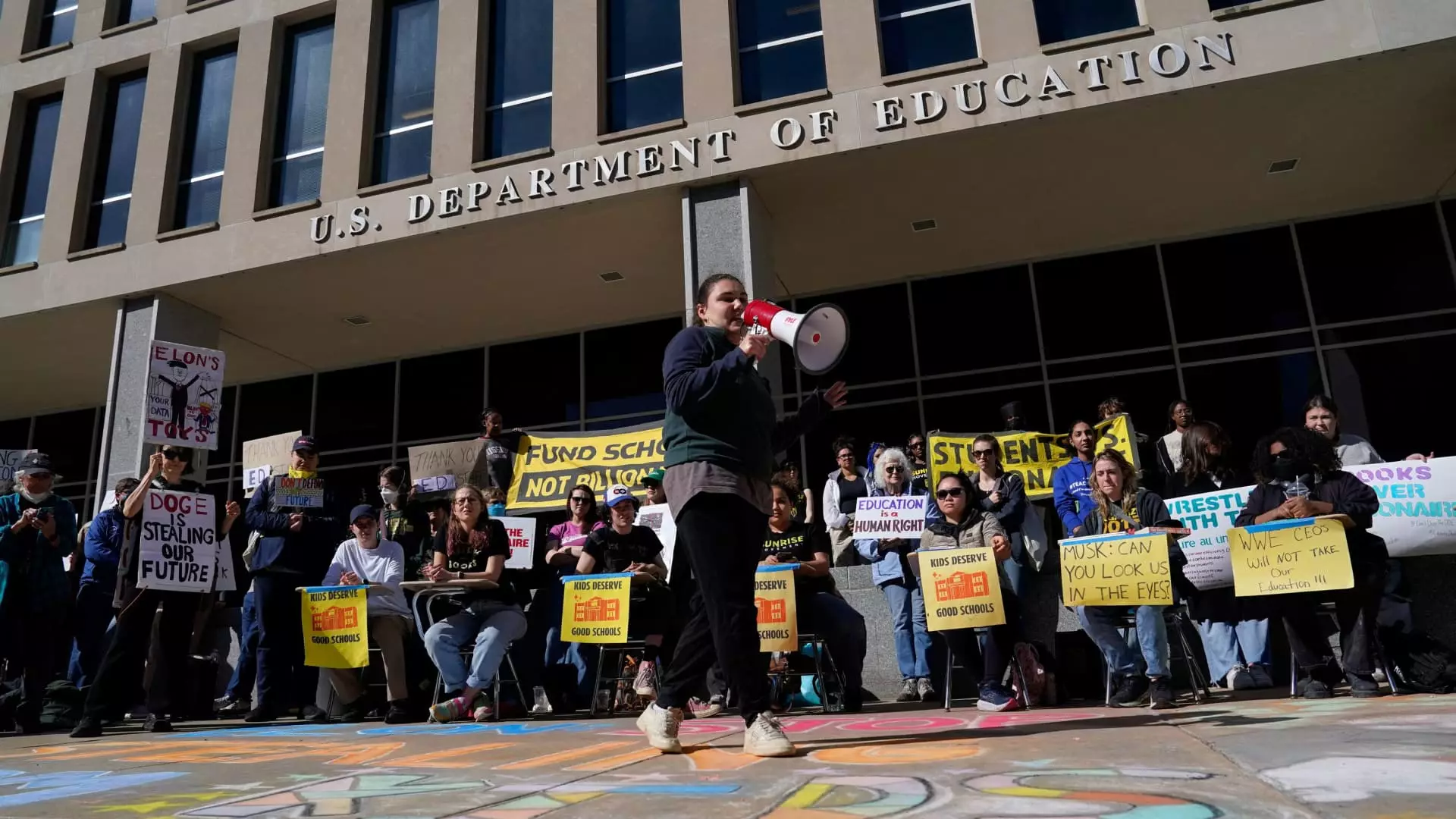The recent legal tussle over the Trump administration’s aggressive cuts to the U.S. Department of Education is more than just a battle over staffing—it’s a dark episode in the ongoing saga of American education policy, driven by a vision that seeks to erode public education’s foundational roles. When the administration petitioned the Supreme Court to overturn a ruling requiring the reinstatement of over 1,300 employees, it illuminated their relentless pursuit to reshape this essential institution. This isn’t merely a bureaucratic maneuver; it’s an ideological crusade that underscores a troubling trend towards undermining federal involvement in education.
The Precarious State of Civil Rights in Education
U.S. District Judge Myong Joun’s preliminary injunction drew attention to the grave consequences of these staff cuts. With the closure of seven out of twelve offices dedicated to enforcing civil rights, we saw a stark illustration of the administration’s priorities—privatization at the expense of equity. This when approximately 17 million families rely on programs like the Free Application for Federal Student Aid (FAFSA). Removing critical oversight means that countless students could find themselves subject to discrimination, effectively stripping away their rights under the smokescreen of “streamlining.”
Legal Battles and Political Consequences
The administration’s undisputed belief that they could unilaterally dismantle an essential government department without congressional approval raises pressing concerns about checks and balances in democratic governance. The subsequent lawsuits filed by 21 states, and later by organizations like the American Federation of Teachers, are not just reactive but essential pushbacks against a blatant disregard for established norms. These legal battles emphasize a glaring truth: education is a public good, not just another political pawn to be sacrificed for hastily conceived policies.
The Illusion of Efficiency: A Dangerous Misinterpretation
Solicitor General D. John Sauer’s argument that these decisions are efforts to eliminate “discretionary functions” stands counter to the unmistakable need for federal oversight. The idea that states can absorb these responsibilities assumes that local entities operate uniformly and possess the capacity to handle these complex issues, which is simply not the case. This overconfidence in state solutions often ignores historical evidence of disparities in education funding and access. It’s a naive view that undermines the very essence of what education should represent in a diverse nation.
Echoes of Past Threats
This current initiative resurrects sentiments from the Reagan era, where attempts to dismantle the Department of Education were met with fierce opposition. Western American society has oscillated between fearing centralized control and yearning for effective management; however, the stakes have never been this high. As we reflect on how far we’ve come since President Jimmy Carter established the Department in 1979, it is critical to recognize that past struggles against similar ideological assaults should galvanize us towards action today.
In essence, the fight to restore these jobs is about more than just employment; it is about reaffirming a commitment to a public education system that serves all, equally and justly. The stakes extend far beyond administrative maneuvers; this is a battle for the soul of America’s educational future.


Leave a Reply